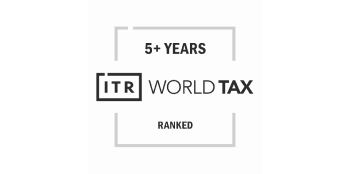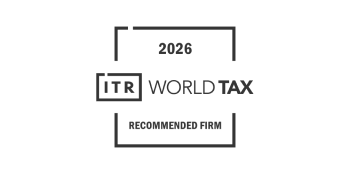.jpg)
.jpg)

The 2025 reform to the Federal Economic Competition Law, published in July of that year, substantially reshaped Mexico’s regulatory framework, strengthening both cooperation mechanisms and sanctions related to anticompetitive practices. Among the most notable changes are the redesign of the Leniency Program and the increase in fines applicable to the most serious infringements. Both elements reflect an effort to enhance deterrence against illegal conduct while at the same time creating clearer incentives for early cooperation between economic agents and the authority.
The creation of the National Antitrust Commission (CNA) marks the beginning of this new stage. The institution not only assumes broader powers in market oversight but must also administer a more demanding system: shorter procedural deadlines, more severe fines, and leniency mechanisms with narrower windows of opportunity. For companies and investors, this scenario requires an immediate adjustment of compliance strategies and internal governance practices, as regulatory decisions will have a direct impact on the legal certainty of their operations. In this context, the redesign of the Leniency Program and the increase in fines become central elements of the reform and merit close examination.
The Leniency Program allows companies or individuals involved in absolute monopolistic practices to obtain full or partial exemption from sanctions, provided they submit substantial, useful, and verifiable information that enables the authority to confirm the existence of such conduct. Its economic rationale is solid: it disrupts cartel incentives by creating a race to self-report, reduces investigation costs, and increases the likelihood of detection.
International experience has shown that similar programs have been decisive in uncovering collusion in strategic markets. In the United States and the European Union, for example, they have helped dismantle agreements in transportation, energy, and consumer goods sectors. In Mexico, the Federal Economic Competition Commission (COFECE) demonstrated that this mechanism was crucial in several high-impact cases, proving its potential as a public policy tool. The expectation now is that the CNA will strengthen it by improving certainty and speed while adjusting it to the demands of increasingly complex and digitalized markets.
The 2025 Reform preserves the Leniency Program but makes it stricter and more demanding by tightening its conditions. From now on, only the first applicant who reports a practice before the CNA formally launches an investigation may obtain full immunity. Once an investigation has begun, attenuated benefits remain available—although full immunity is no longer possible. In the initial stage, partial reductions of up to 50% of fines may apply. Participants cooperating at later stages may access smaller reductions—30% or 20%, depending on timing and the quality of the information provided.
Additionally, the Reform expanded complementary benefits: recipients of immunity cannot be disqualified from participating in public procurement processes and will not be subject to collective actions initiated by the authority. This reinforces the logic of cooperation and aims to encourage economic agents to act more swiftly in reporting unlawful practices.
Although the redesigned program seeks to strengthen its effectiveness, it also presents limitations. The narrower window to obtain full immunity may deter companies that, due to governance structures or internal complexity, cannot react quickly enough. Moreover, the program still depends on the existence of a whistleblower; if the CNA does not conduct robust ex officio investigations, sophisticated cartels may remain undetected.
Another key element is that the program’s effectiveness is closely tied to trust in the authority. If companies perceive clarity in processes and consistency in the application of benefits, they are more likely to use the program; otherwise, participation may decline, undermining the entire enforcement scheme.
Confidentiality is essential to the effectiveness of the Leniency Program. The CNA must ensure that information provided by applicants remains strictly confidential, preventing leaks that could trigger commercial retaliation or parallel litigation.
International experience shows that when confidentiality is rigorously observed, leniency programs achieve high levels of participation and effectiveness. Conversely, any doubt about the protection of whistleblowers may discourage cooperation and weaken the entire enforcement system. As a result, the management of confidentiality will be one of the clearest indicators of the CNA’s institutional maturity.
The Reform significantly raised the sanctions applicable to anticompetitive conduct. Absolute monopolistic practices may now be punished with fines of up to 15% of the infringer’s total revenues, compared to the previous 10%. For relative monopolistic practices and unlawful mergers, fines may reach 10% of revenues, up from 8%. Finally, transactions carried out without prior mandatory authorization from the CNA may be penalized with up to 8% of revenues, compared to the previous 5%.
In addition to these increases, new sanction categories were introduced. These include penalties for failing to attend hearings without justification, providing evasive responses, obstructing dawn raids, or violating disqualification orders. Complementary sanctions were also added, such as temporary disqualification from public procurement processes for periods ranging from six months to five years. These additions reflect an effort to close compliance gaps and strengthen the authority’s enforcement capacity.
The increase in fines has a clear deterrent effect: companies will face significantly harsher financial consequences if they violate the law. This reinforces the rationale behind the Leniency Program, as the economic risk of being sanctioned increases proportionally, making cooperation with the authority more attractive.
However, there may also be negative side effects. The higher sanctions could incentivize more prolonged litigation, as companies may choose to exhaust judicial avenues before accepting penalties of such magnitude. Likewise, the increased fines may have a critical impact on firms operating in low-margin sectors, potentially affecting their financial viability. For these reasons, it is essential that the CNA maintain clear, technical, and consistent criteria so the application of sanctions remains predictable and avoids creating additional market distortions.
The Reform introduced a new figure in the Mexican framework: certified internal compliance programs. These are corporate self-regulation schemes designed to prevent and detect anticompetitive practices. When a program is evaluated and certified by the CNA, it may be considered a mitigating factor if the company faces an investigation.
Certification must be renewed every three years and include continuous training mechanisms, early-detection protocols, internal reporting channels, and supervisory systems. Through this, the authority seeks not only to sanction but also to promote a stronger competition culture within organizations.
For companies, certification represents a strategic opportunity. Those with recognized programs may access significant reductions in liability, even in cases where damages are proven. Beyond the legal benefits, adopting these schemes helps strengthen the confidence of investors, business partners, and authorities by signaling a genuine commitment to fair competition. In a context of harsher sanctions, these programs become not only a legal shield but also an indispensable risk-management tool.
In this sense, the tightening of sanctions and the value of certified programs must be understood as complementary elements: while enforcement increases risks, certification offers companies concrete mechanisms to mitigate them.
The reform to the Federal Economic Competition Law places the Leniency Program and the increase in fines at the center of Mexico’s competition policy. This redesign strengthens deterrence and the detection of anticompetitive practices, but also demands that companies adopt stronger preparation and a deeper commitment to legality.
The success of this model will depend on the CNA’s ability to guarantee confidentiality, apply consistent technical criteria, and certify effective compliance programs. For economic agents, prevention, rapid response, and developing governance environments aligned with international best practices will be essential to navigate this new landscape with legal certainty and competitiveness. How the CNA implements these tools will determine whether Mexico consolidates itself as a robust and reliable competition environment or, conversely, faces heightened uncertainty and excessive litigation.
At Mijares, we have a specialized Competition and Antitrust team that advises clients on compliance with antitrust regulations and restrictive trade practices.We ensure that their business activities adhere to competition laws, promoting fair market conditions and helping them prevent potential legal exposure or sanctions.
Awards














